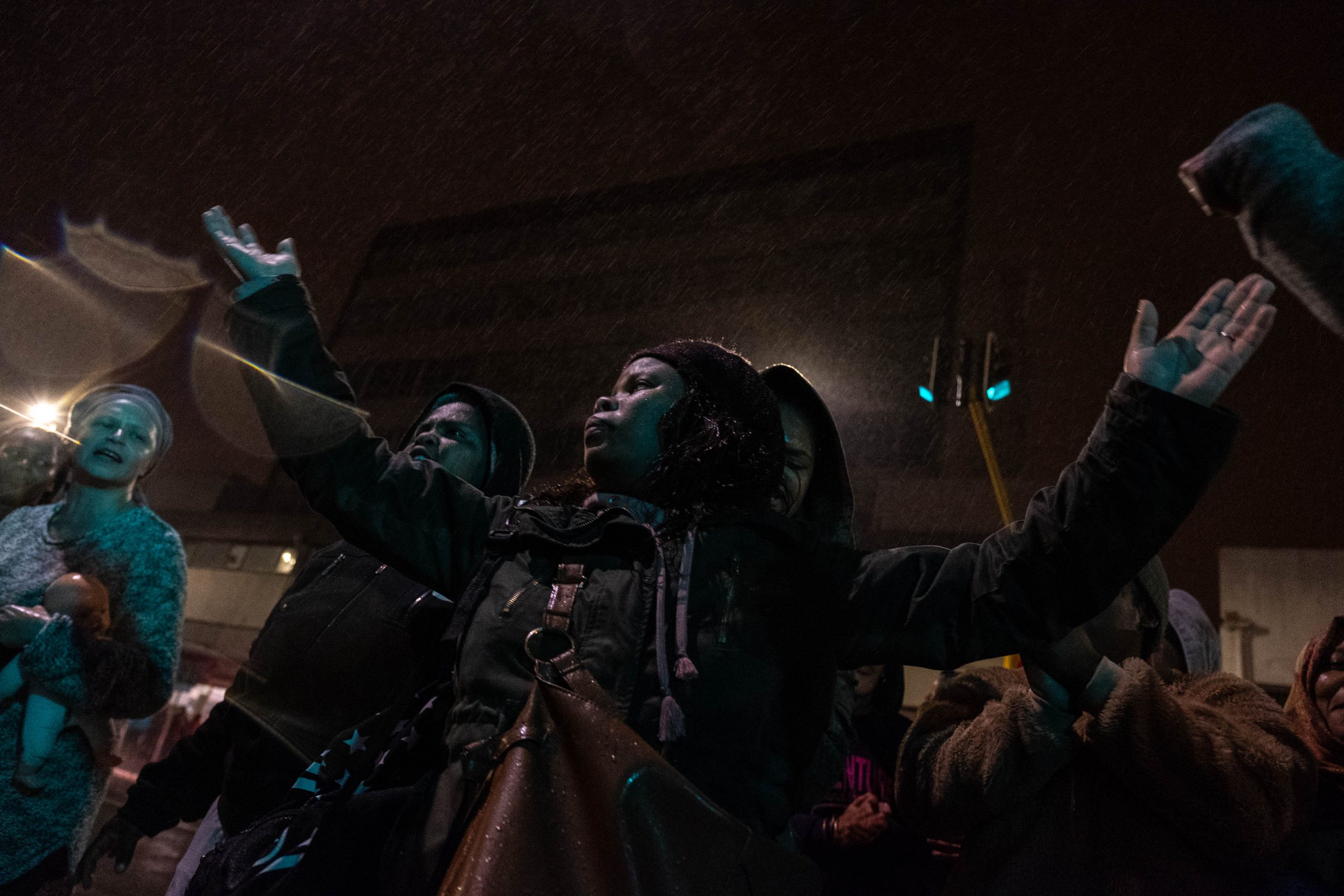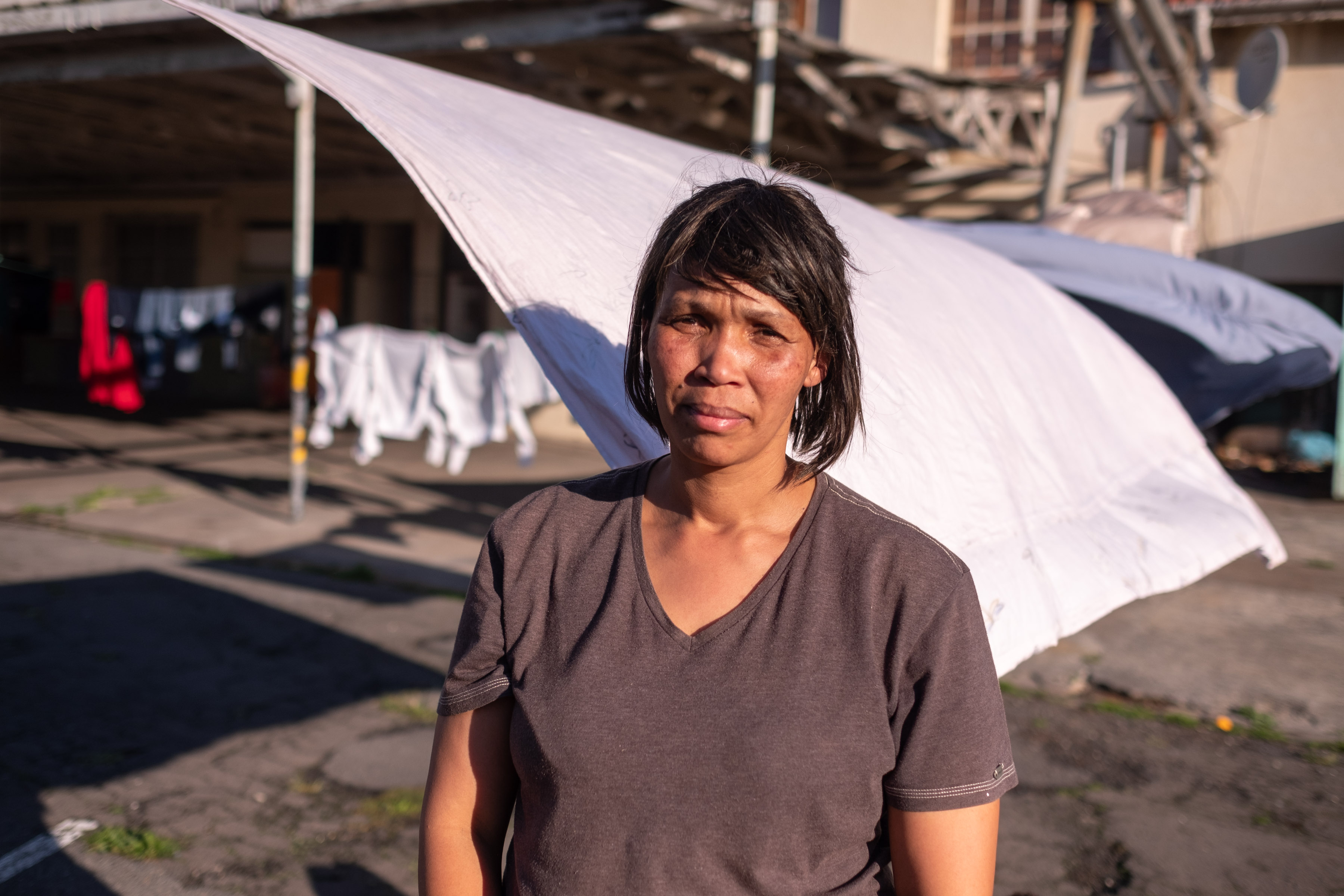Woodstock residents say police raid was xenophobic
A forcible police raid in the middle of the night while soldiers stood guard sparked terror in the hearts of those living at Cissie Gool House – and the police have failed to provide a feasible exp…
Author:
5 August 2019

The evening of 25 July was calm and peaceful at Cissie Gool House, the former Woodstock Hospital that has been occupied by not-for-profit organisation Reclaim the City. Outside, the temperature was 11°C with light rain wetting the ground. The peace would soon be shattered.
At about 1am, when most of the residents of Cissie Gool House were fast asleep, the South African National Defence Force (SANDF) surrounded the former hospital and cut the chains on the entry gates, instructing the 24-hour security guards to remain out of the way.
Shortly thereafter, South African Police Service (SAPS) officers entered the grounds and began the planned raid. The sound of doors being kicked down and hammered open could be heard throughout the grounds as the police went from door to door looking for drugs, guns and migrants, while the SANDF soldiers stood guard.

A rude awakening
At about 1.30am, Sphamandla Machi was violently torn from a deep sleep by the sound of his door being kicked open. He opened his eyes to see men standing in his doorway, but all he could see were their eyes. Their faces were covered with balaclavas. Terrified, he dared not move. One of them entered the room, pointed his gun at Machi’s face and shouted at him to get up. More of them entered his room. He wasn’t dreaming.
Confused, he kept asking why they were there, thinking that he was being robbed. No one answered.

They made him remove the only item of clothing he was wearing-sleeping shorts-and perform squats as male and female soldiers and police officers watched. He realised that they thought he might have been smuggling drugs.
They then ransacked his home, searching everything down to his rice and maize meal.
He asked if he could get dressed but they only allowed him to put on underwear before taking him outside and making him lie face down on the concrete ground along with many others.

Xenophobia, racism and confusion
While lying on the ground, Machi and those near him started to plead with the soldiers, saying, “We are going to die out here, it’s cold.” Recognising their accents as South African, the soldiers became confused as to the purpose of this raid. They [SAPS] had been berating the occupants of Cissie Gool House as makwerekweres (foreigners).

Machi and his fellow hostel dwellers were then taken to the Woodstock Police Station. When the police realised that these people were students, they told them that after the raid was finished they could go back to sleep.
“What they did that day that was so painful,” said Machi. “Over here we live like family. We are mixed-race. There’s coloureds and blacks. When they were taking us, they divided us. They said, ‘Coloureds this side and blacks that side.’ Even in the police station, we were divided.”

The men identifying as coloured were processed when they arrived. The men identifying as black were made to wait a further two hours, through a change of shift, until they were processed and allowed to leave.
When they asked a police officer why they were made to wait for so long, he replied: “You are all foreigners, we are going to send you back to your countries.”
When they were released, they had to suffer the additional humiliation of walking home wearing only boxer shorts and vests.

Trauma in the aftermath
Like many of the residents, Machi was too traumatised to go to work that day. Despite having barely slept that night, after cleaning up his room and attempting to fix his broken door, he was too shaken to sleep or eat.
For Izaan Adams, the raid took a major toll on his already shaky health. He had just returned from the hospital where he was being treated for kidney problems.
His neighbour, Lee-Ann Cloete, said she had to go and rub his tight chest and feed him. “The previous night he was okay,” said Cloete. “He was still sick, but he could do things for himself.”

Adams’ cousin, Chunelle Cloete, who lives with him, explained his frail condition to the police when they pulled him out of his home and made him lie down on the concrete floor, but they ignored her.
Nazeem Kalam said the raid opened up old wounds by making him recall the trauma of a violent hijacking he experienced 15 years ago, which left him blind. When the police came to his door at Cissie Gool House, as with the others, they did not identify themselves. When he did not come out immediately, they started breaking his door down.
“The way they rushed this door, I was thinking ‘Oh Lord, don’t tell me it’s gangsters now’,” he said. “It just flashed back. It just came back, the way they approached.”

Unanswered questions
Faghmeeda Ling, one of the Reclaim the City leaders, said the police had notified the organisation in a public meeting that there would be a raid at some stage and that they would need full cooperation from the residents. By all accounts, the residents did give the police their full cooperation. But Ling said: “They treated us like shit, like dirt, like we weren’t human beings.”
That evening, the residents of Cissie Gool House marched to the Woodstock Police Station, blocking the road in peaceful protest and demanding that station commander Colonel Dumezweni Ntsezo give them answers.

Ntsezo came to see the residents and listened to their testimonies of what had happened, but failed to give them satisfactory answers as to why the raid had happened in the way that it did. When asked about the damage to their property, he told them they would need to go to the police station and report the damage through official channels.
“When it comes to coloureds or blacks, the police always act like they don’t care who you are or what you are. Tomorrow they can say someone is smuggling here and they just do it again here, and then nothing happens,” said Haroon Williams, 71.

When the SAPS Western Cape media centre was asked about the allegations made by numerous residents of Cissie Gool House, Lieutenant Colonel Andrè Traut said: “This office is not in a position to offer you a comment before the outcome of the investigation.”
Ntsezo was also asked to comment on the allegations, but had not responded by the time of publication.

